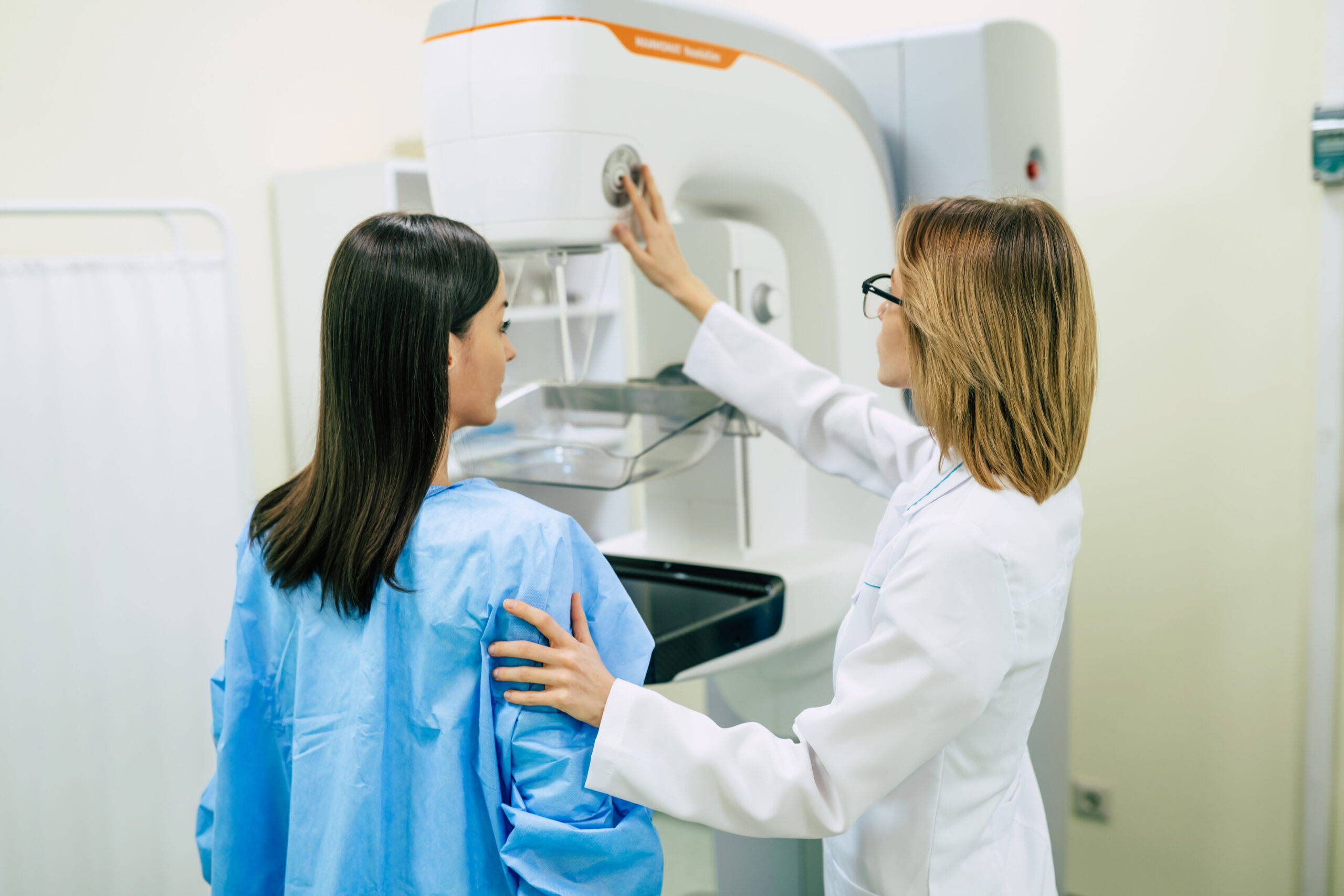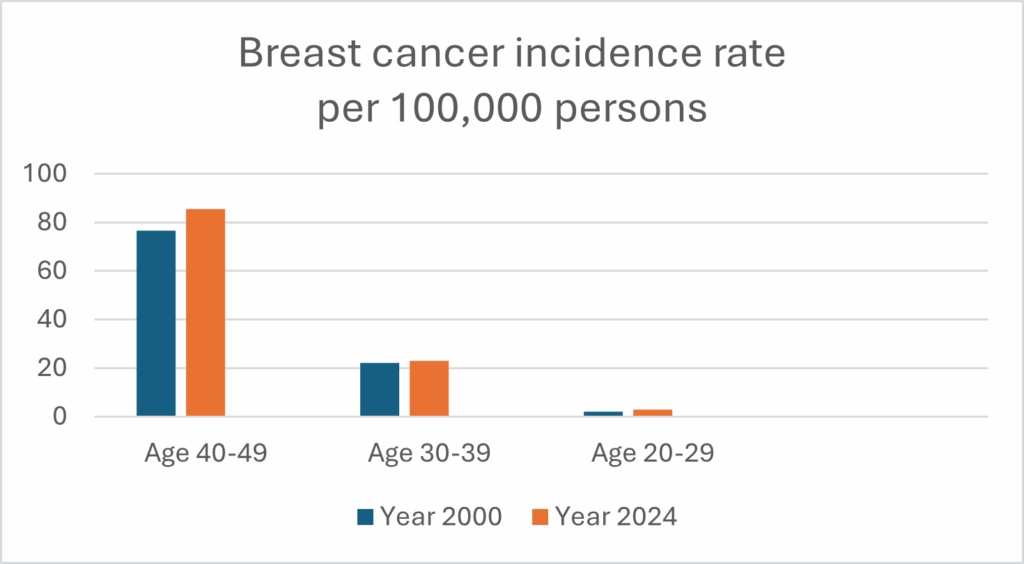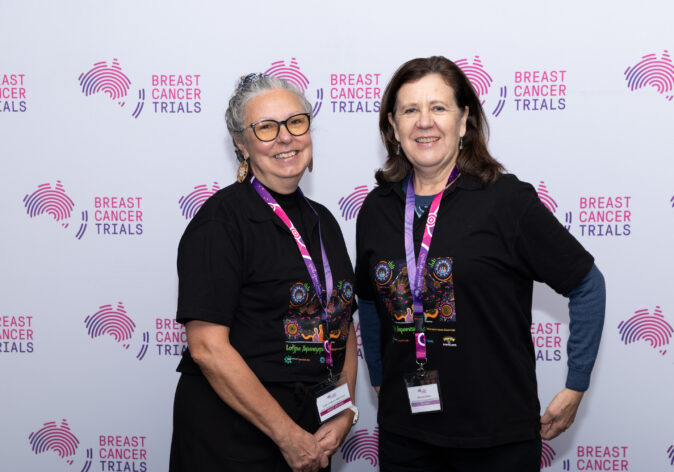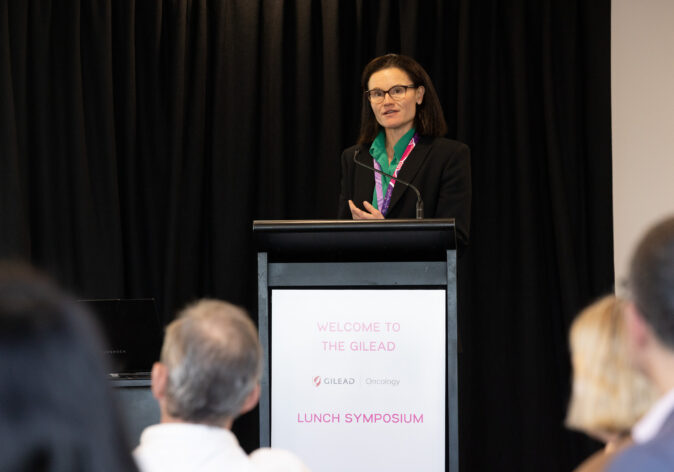Breast cancer is often thought of as a disease that affects older women, but more young women are being diagnosed with breast cancer. Early-onset breast cancer refers to breast cancer diagnosed between the ages of 20 and 49. While less common than in older women, it tends to be more aggressive and can pose unique challenges.
In Australia, the incidence of breast cancer in young women is rising. This has serious implications for younger patients and their families, impacting fertility, careers, and emotional wellbeing. This article will explain what early-onset breast cancer is, its symptoms, that rates are increasing, challenges faced by younger women, and how clinical trials are helping to improve outcomes.
What is Early-Onset Breast Cancer?
Early-onset breast cancer is defined as breast cancer in women aged 20-49. This younger age group is significant because the disease often behaves differently compared to cases diagnosed in older women. Tumours are more likely to be aggressive, such as oestrogen receptor-negative subtypes. These aggressive tumours tend to grow faster and spread to lymph nodes or distant regions of the body more readily. Younger women are also more likely to face delayed diagnoses, as symptoms may be dismissed or overlooked due to their age.
How Common is Breast Cancer Under 40?
Whilst breast cancer in women under 40 is less common, it is far from rare. In fact, around three Australian women under 40 are diagnosed every day. Awareness of early-onset breast cancer is essential for women, their families and health professionals.
How Common is Breast Cancer Under 50?
According to the Australian Institute of Health and Welfare, around 20% of all breast cancer occurs in women under the age of 50. Approximately 0.5% of all breast cancers in Australia are diagnosed in women under 30 years, 4% in women aged 30-39 years, and 16% diagnosed in women aged 40-49 years. This equates to approximately 4,000 diagnoses each year in women under the age of 50. This highlights the importance of recognising signs and symptoms to ensure timely access to appropriate care.
Is Early-Onset Breast Cancer Increasing in Australia?
Yes, research shows that the incidence of early-onset breast cancer in Australia has been steadily rising over recent decades. The number of new breast cancer cases in women aged 20–39 rose from 500 in 1982 to 926 in 2020, with projections of 1,022 cases in 2024. The age-specific rate from women aged 20-39 increased from 21 per 100,000 in 1982 to 28 per 100,000 in 2024.
Survival Rates for Young Women with Breast Cancer
While survival rates for young women with breast cancer have improved thanks to advances in treatment, outcomes still tend to be poorer than for older women, largely due to the aggressive nature of the disease. These statistics highlight the need for greater awareness of rising rates of early onset breast cancer in Australia and for more tailored support systems for younger patients.
You can read more about this important area of research through Breast Cancer Trials’ initiatives focused on improving outcomes for young women.
Symptoms of Early-Onset Breast Cancer
Recognising the symptoms of breast cancer in young women is essential for early detection. Common early-onset breast cancer symptoms include a lump or thickening in the breast, changes to the nipple such as discharge or inversion, redness or dimpling of the skin, swelling around the breast or underarm, and persistent pain or tenderness.
Unfortunately, these symptoms are sometimes overlooked because younger women are not seen as being “at risk” of breast cancer. This can lead to delayed diagnoses and more advanced disease at the time of treatment. Raising awareness of the signs of breast cancer in young women is therefore critical, and any unusual breast changes should be checked promptly by a general practitioner (GP).
The genetics of breast cancer may also play a role in the development, treatment and nature of breast cancer, to read more see our article on Breast cancer and genetics. Women with a family history or who carry BRCA1 or BRCA2 gene mutations have a higher risk of developing breast cancer at a young age.
To better understand the impact of breast cancer risks and lived experiences, you can read Rebecca Angus’s story.
Challenges Faced by Younger Women with Early-Onset Breast Cancer
A diagnosis of breast cancer at a younger age can be particularly difficult, as it often coincides with life stages focused on career building, relationships, and family planning. Beyond the physical effects of treatment, younger women face unique emotional, social, and practical challenges that differ from those of older age and require tailored support.
Fertility and Breast Cancer
Treatments like chemotherapy can harm ovarian function, potentially causing premature menopause and infertility. Certain hormonal therapies may also temporarily suppress ovarian activity, affecting reproductive planning. These fertility-related side effects can be particularly distressing for young women who are already dealing with a recent cancer diagnosis. They may also require additional treatments and procedures to preserve fertility – such as egg or embryo freezing, on top of their breast cancer treatment.
Breast Cancer Trials conducted the practice changing study called POEMS, which proved that the treatment goserelin can preserve a woman’s fertility during chemotherapy. Find out more about this important research here.
For more guidance, see our Q&A on breast cancer and fertility, which explores common questions and support available for younger women.
Returning to Work and Career Disruption
A diagnosis can interrupt work, study, or career progression at a critical stage of life. Many women face financial strain and uncertainty, regarding their career and returning to work after breast cancer can be difficult due to lingering side effects such as fatigue or cognitive changes.
Emotional Distress and Counselling
Younger women often experience high levels of anxiety, depression, and body image concerns. Access to specialised support, such as counselling and peer support programs, can make a significant difference. Breast Cancer Trials offers resources on supporting young women with breast cancer to help navigate these challenges.
Clinical Trials Supporting Young Women with Early-Onset Breast Cancer
Clinical trials are a vital part of improving treatment and care for younger women with breast cancer. At Breast Cancer Trials, several studies focus on premenopausal women to improve outcomes and reduce treatment side effects.
OLIO Trial
The OLIO trial is investigating whether adding a targeted therapy with or without immunotherapy to standard pre-operative chemotherapy treatment can improve results for women with ER-positive, HER2-negative early breast cancer. The goal is to find more effective, tailored treatment options for younger women.
Neo-N Cohort C Trial
The Neo-N trial is studying how newer approaches can improve treatment for premenopausal women with triple negative early breast cancer. It aims to better control cancer using dual immunotherapy treatment before surgery.
OPTIMA-Young Trial
The OPTIMA-Young trial is identifying whether patients with ER-positive, HER2-negative early breast cancer may be able to safely avoid chemotherapy, sparing them from unnecessary treatment and the possible side effects that come with it. This research is especially important for younger women balancing quality of life with long-term survival.
These breast cancer clinical trials in Australia are designed not only to improve survival rates but also to enhance quality of life for younger patients. You can also read about positive news for young women with breast cancer and our work in developing a model of care for young women.
Sources:
https://www.monash.edu/news/articles/breast-cancer-costs-australian-women-and-the-wider-community-billions-in-lost-work-hours-and-wages
https://www.canceraustralia.gov.au/cancer-types/breast-cancer-young-women
https://www.aihw.gov.au/reports/cancer/breast-cancer-in-australia-an-overview/summaryhttps://www.canceraustralia.gov.au/news/lets-talk-about-breast-cancer-young-women
https://www.canceraustralia.gov.au/breast-cancer-risk-factors/risk-factors/personal-factors#age
https://www.bcna.org.au/resources/about-breast-cancer/breast-statistics-cancer-in-australia/
https://www.canceraustralia.gov.au/cancer-types/breast-cancer-young-women/breast-cancer-young-women-statistics
Join Our Free Q&A Webinars
Don’t miss an opportunity to stay informed about the latest in breast cancer research and care. Join our FREE Q&A webinars, where we cover important topics including whether more young women are being diagnosed with breast cancer.
Stay Connected with Breast Cancer Trials
Don’t miss an opportunity to stay informed about the latest in breast cancer research and care. Sign up to our researcher’s newsletter via the form below to stay up to date.




